Severe eczema like 'a thousand needles jabbing me'
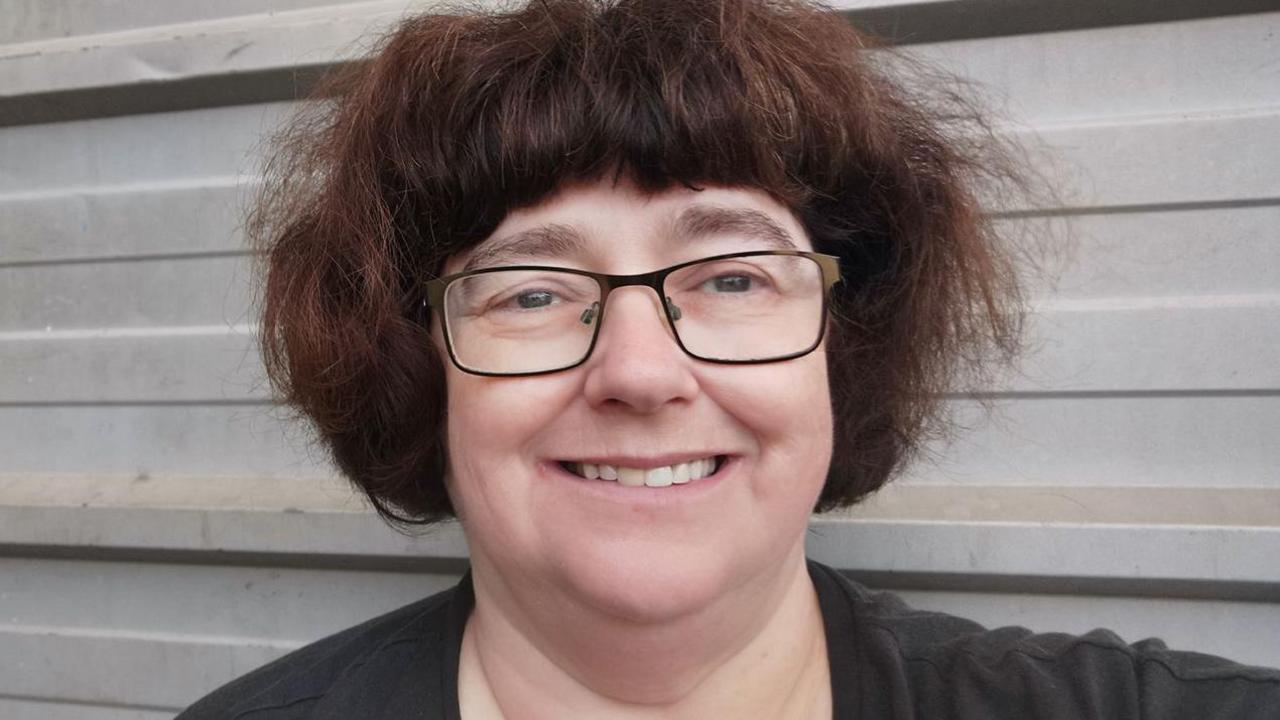
Lois Thomas said she was usually an upbeat and happy person but her eczema had driven her "mad"
- Published
Constant itching and red-raw weeping skin are some of the physical signs of severe eczema. But the suffering endured by some is more than skin deep and new research is exploring ways to help people cope with the psychological impact of the chronic condition.
Amie Wilson, who has had eczema since she was a baby, is among dozens of volunteers taking part in the University of Hull research programme.
Her childhood was defined by "wet wraps, bandages and gloves" and at times she had struggled to walk during severe flare-ups, which left her unable to step out of her home.
"It used to hurt really bad and I used to hate it, especially going out with them on because people used to stare," said the 21-year-old teacher training student, from Cottingham, East Yorkshire.
"I used to be scared of it, not of the eczema itself, but worried about what others thought of me. I didn't like people looking at me.
"I was bullied in primary school - it was mainly name-calling."
According to the National Eczema Society, atopic eczema - the most common form - affects one in five children and one in 10 adults in the UK, a total of eight million people.
Aside from the physical symptoms, many have experienced sleeplessness, anxiety, depression and other mental health problems.
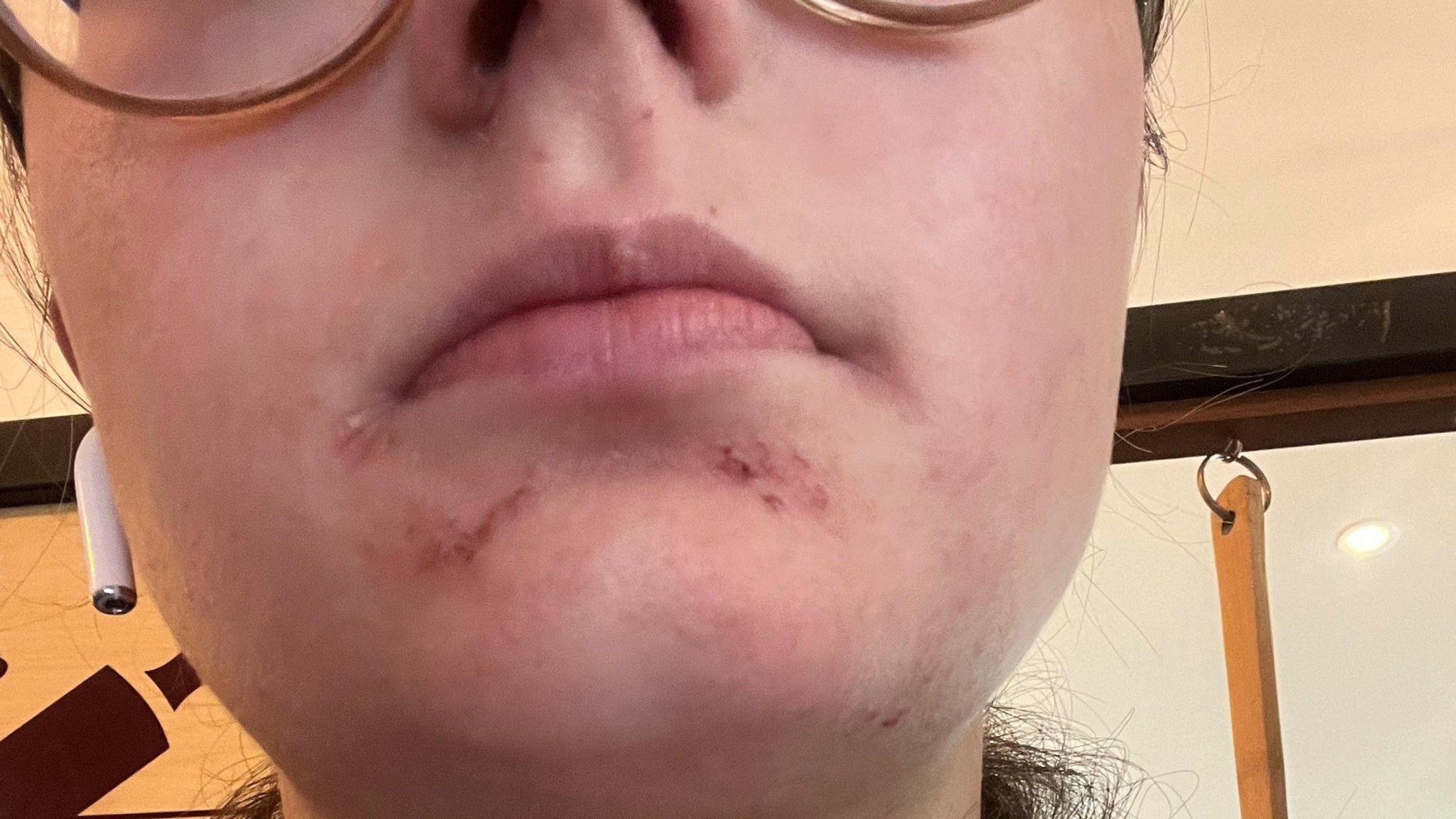
Amie Wilson said she was bullied at primary school because of her eczema
Lois Thomas, 59, from Hull, has been living with eczema for more than 20 years, but about 18 months ago her condition got worse with the “red raw burning and itching” taking a hold all over her body and making daily life unbearable.
"It was horrendous. It was really, really sore, like a thousand needles jabbing in. It cracked, it bled, it flaked," said the children and families worker.
"People pointed and stared at me, because my skin was so red and angry and [they] asked me if I had scalded myself or if I was sunburnt.
"I left a trail of skin flakes without even knowing.
"I think the worst of it is when you're working and you don't sleep, it is awful because you're tired. You can't focus."
Mrs Thomas, who also has asthma and hay fever, said there was "no apparent cause" for the sudden attack, which at times left her unable to go swimming with her family due to the open sores.
"By this point I was going demented," she said.
"I'm normally an upbeat, happy-go-lucky, easy-going person. But oh my goodness, it drove me mad."
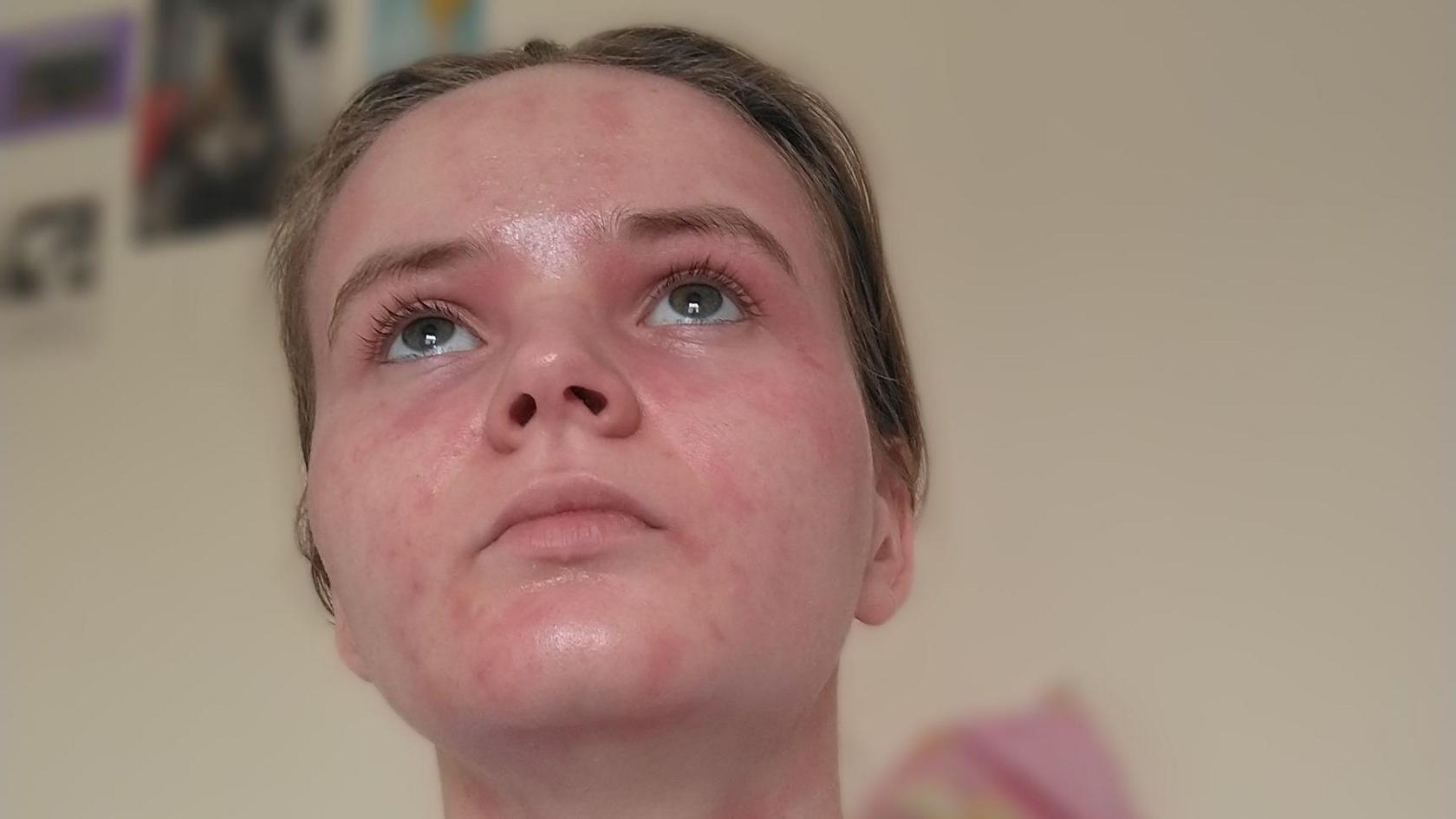
Chloe North initiated a research programme looking into the psychological effects and stigma of eczema
She went through various treatments, including steroid creams, oils and lotions, which she said made her look "like a greasy chip" - and was later prescribed the immunosuppressant drug methotrexate, which "transformed my life and has improved my eczema hugely".
However, the medication came with side effects, external in the form of nausea and hair loss, as well as making her prone to chest infections and other illnesses.
The church worker is also one of the volunteers taking part in the University of Hull research programme, which is looking into the psychological impact of chronic skin conditions and the stigmatisation of them.
Dr Henning Holle, a reader in the university's psychology department, said he hoped the study would result in a training and support programme for up to 20% of the UK population who were estimated to have eczema.
"One thing that we've been hearing from people with eczema is that they get almost no support with the psychological aspects of their disease.
"They might get a skin cream, they might get a drug after they've seen a dermatologist, but the psychological problems that come with living with eczema remain unaddressed."
The research was triggered by the experience of Chloe North whose undergraduate psychology dissertation focused on the impact of stigma on people with eczema and their mental health.
The 22-year-old, from south-east London, graduated from the university in 2023 and is working on the study as a research assistant.
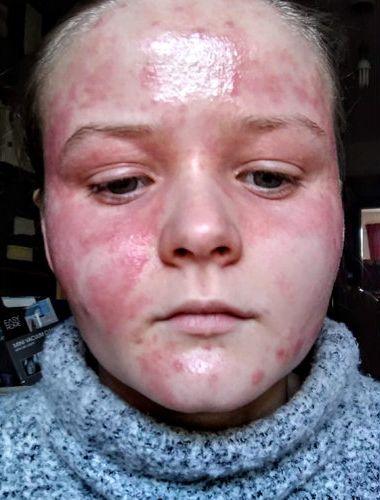
Chloe said she withdrew from her school and friends as a result of her eczema
She has had eczema for most of her life and her teenage years were blighted by frequent hospital appointments.
"I never really got a break and it was very all-consuming," she said.
"I couldn't really sleep, I couldn't really eat. I missed loads of hours of school because I just couldn't come in or I had loads of hospital appointments. I sort of withdrew from school a bit and from my friendships, which is really sad."
She said there was a lack of research into the subject and while writing her dissertation, the then-student realised her skin condition had affected her mental health and "how I viewed myself".
Following treatment, Ms North said her condition had become "more managed" with less of an impact on her daily life.
"It doesn't affect me as much as it used to because I'm quite aware of it.
"Like I can wear shorts all the time even when my leg is flared and stuff like that, whereas 14-year-old me would never have done that."
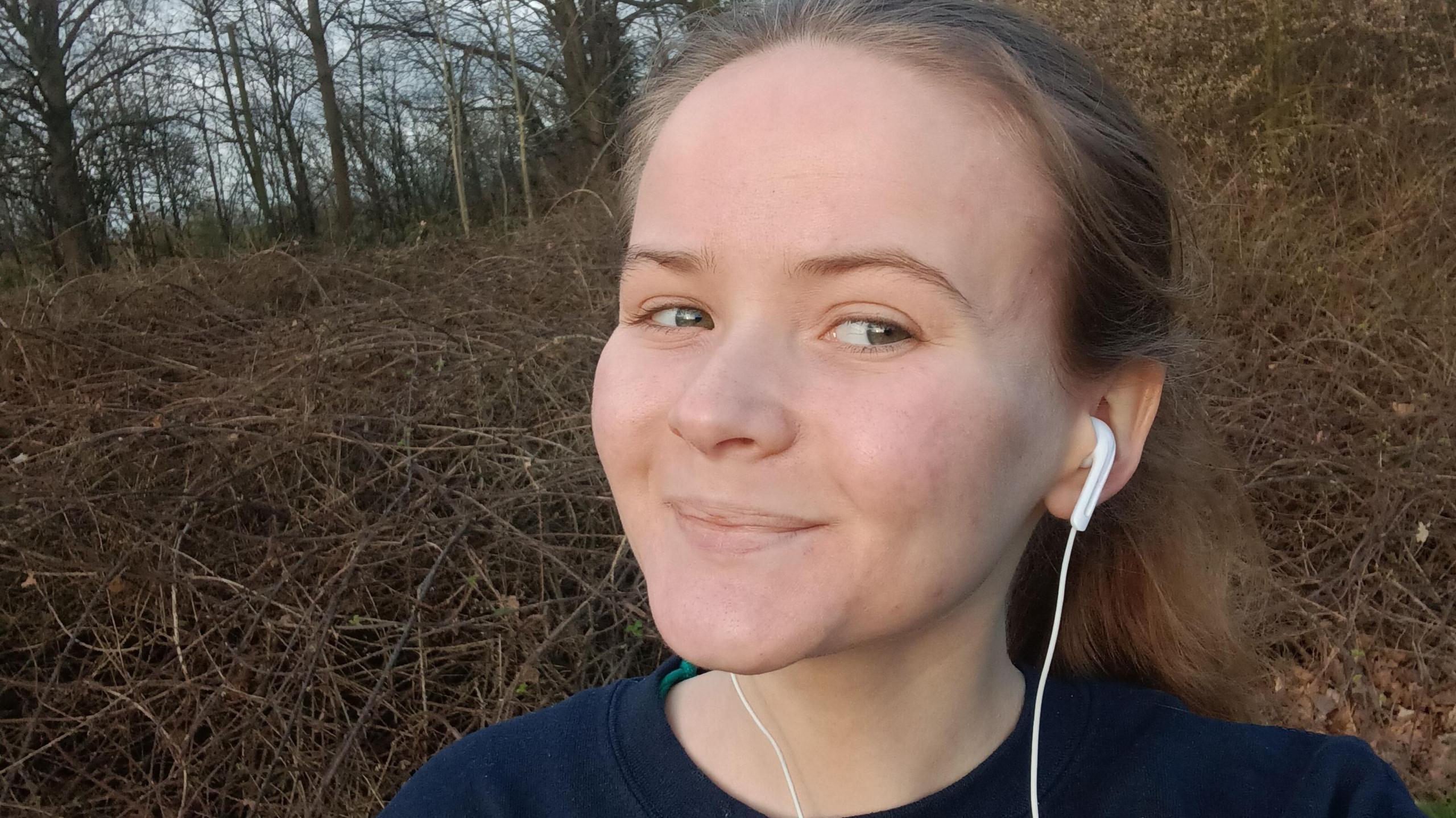
Chloe says her eczema is "more managed, so it doesn't affect my day-to-day life like it used to"
With eczema running through Amie's family, the 21-year-old said she received a lot of support and encouragement from her mother and grandparents, who all had to live with the condition.
"As I grew older, I started embracing it more rather than being worried about it and not worried about what others think.
"I always thought someone else that's suffering has got it worse off than me and I've got it easy compared to some other people and I just need to get on with it."
Follow BBC East Yorkshire on Facebook, external, X (formerly Twitter), external and Instagram, external. Send your story ideas to eastyorkslincs.news@bbc.co.uk, external